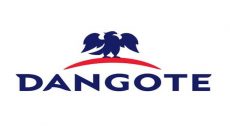The United Kingdom Nigeria Infrastructure Advisory Facility (UKNIAF) has signed an agreement with the Bureau of Public Enterprises (BPE) to support the Bureau in the areas of Institutional and human capacity building to enable BPE deliver on its mandate in delivering infrastructure projects in Nigeria using the Public Private Partnership (PPP) model.
Signing the agreement in Abuja on Thursday, June 3, 2021, Director General of the Bureau of Public Enterprises (BPE), Mr. Alex A. Okoh said the ceremony is to appreciate UKNIAF’s willingness to support the PPP programme by providing technical assistance to support Nigeria’s transition towards low carbon climate resilient infrastructure to be delivered.
Okoh said UKNIAF’s support will enable appropriate screening and selection of projects that promote inclusiveness, climate smart, reduce poverty and are potentially bankable, even as he noted that the agreement is the aftermath of the Federal Government’s policy on Administration of Concession in Nigeria, removing ambiguity and providing clarity on institutional responsibilities for PPP programme in Nigeria.
In the said circular, “the Ministries, Departments and Agencies (MDAs) are to identify projects, the Federal Ministry of Finance, Budget & National Planning is to screen and approve in line with the National Integrated Infrastructure Master Plan (NIIMP) and Economic Recovery Growth Plan (ERGP) documents while BPE is the project or transaction implementation agency”, Okoh stated.
He said, UKNIAF has identified the following critical areas in which it would provide institutional and human capacity building support:
· Integrating national and global social sustainability criteria in project preparation and selection;
· Developing PPP project pipeline, producing concept notes, managing the transaction stage of the PPP project delivery lifecycle, etc.;
· Supporting the procurement process for appointment of Transaction Advisors;
· Supporting where possible, the process of securing project preparation funds from UKNIAF’s panel of PPF fund providers; and
· Providing ongoing support as required enhancing the capacity of the institution to reach commercial close on projects.
According to him, it was on that basis that UKNIAF sent the Bureau, a Mutual Accountability Framework (MAF) aimed at “fostering a shared agenda of ensuring aid effectiveness and serves to clearly state the roles of each party, their responsibilities and their commitment to working collaboratively”.
The Director General said the Bureau was committed to the goals, not only because it would aid access to global financing, but would see the issues as integral to the country’s growth and economic sustainability.
Consequently, as a requirement of the Mutual Accountability Framework, both teams constituted the following:
o Project Steering Committee–PSC (with the mandate of ensuring the senior level engagement required to ensure the effective and timely delivery of the outputs, outcomes and impact defined in the MAF). The members of the PSC is as following:
§ Director General (Chairman)
§ Director I&PPP (Secretary)
§ Other members from UKNIAF
o Project Delivery Team (with relevant skills and mandate to engage with UKNIAF TA Consultants and work collaboratively day-to-day on the delivery of the programme outputs).
He pledged the Bureau’s willingness to work with UKNIAF for its support to drive the accelerated growth and development of a pragmatic, climate sensitive, inclusive and sustainable Public Private Partnership programme for the development of the country’s infrastructure.
AminaTukur Othman
Head, Public Communications
























